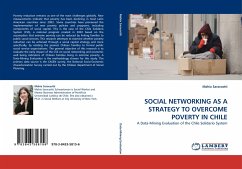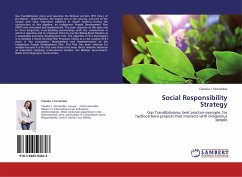Poverty reduction remains as one of the main challenges globally. New measurements indicate that poverty has been declining in most Latin American countries since 2002. Some countries have pioneered the implementation of new poverty policies and programs, including components of social capital. This is the case of the Chile Solidario System (CSS), a national program created in 2002 based on the assumption that extreme poverty can be reduced by linking families to public social services. This research attempts to examine whether poverty reduction can be achieved through a social capital strategy and more specifically, by relating the poorest Chilean families to formal public social service organizations. The general objective of this research is to evaluate the early impact of the CSS on social networking and economic well being indicators of Chilean families living in extreme poverty. A Data-Mining Evaluation is the methodology chosen for this study. The primary data source is the CASEN survey, the National Socio-Economic characterization Survey carried out by the Chilean department of Social Planning.








